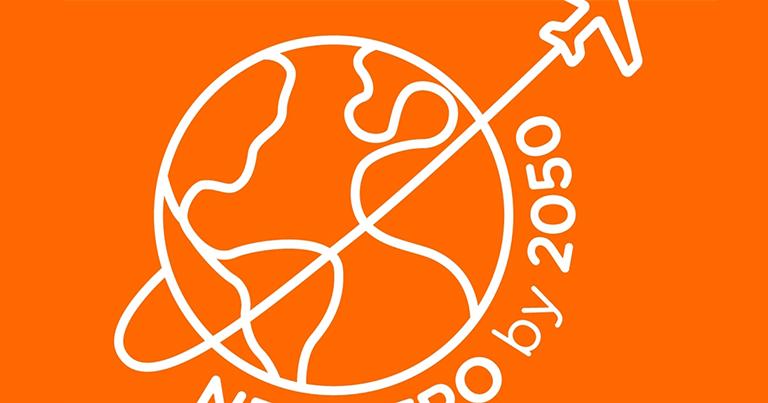
easyJet has unveiled a new ambitious roadmap to achieve net-zero carbon emission by 2050. The plan will see the airline reach net-zero through a series of elements, with the ultimate ambition to be flying on zero carbon emission hydrogen-powered aircraft.
easyJet is already working with partners across the industry, including Airbus and Rolls-Royce on several dedicated projects to accelerate the development of zero carbon emission aircraft technology.
This is complemented by carbon removal technology to physically remove carbon from the atmosphere and Sustainable Aviation Fuel (SAF) as an interim measure, as well as building on work the airline is already doing to make its everyday operations ever-more fuel efficient and advocating for airspace modernisation, to reduce the use of fuel by flying more direct routes.
Johan Lundgren, CEO of easyJet, said: “Challenging the status quo is in easyJet’s DNA. Today, we’re the first airline to outline an ambitious roadmap in which zero carbon emission technology plays a key role to take us to net-zero carbon emissions by 2050. And 82% of the British public agree with us, believing that zero carbon emission flying is the best approach to truly decarbonise aviation.
“By implementing our roadmap step by step in the years to come, we’re committed to ensuring there is a sustainable future of aviation for the benefit of the next generation and our planet.”
The announcement comes as new research by the airline has revealed that over three-quarters of the public (76%) think that companies need to urgently set out how they will achieve net-zero this century and demonstrate how they are operating more sustainably.
Recent initiatives announced by the airline also include a multi-million-pound fleet-wide investment into the latest aircraft software which will help the airline to achieve substantial and permanent carbon emission reductions in the short-term by enabling the optimisation of aircraft descents.
The fleet-wide introduction of Descent Profile Optimisation (DPO) alongside the Continuous Descent Approach (CDA) on all compatible aircraft will deliver fuel and therefore carbon reductions, as well as noise reductions for aircraft also equipped with CDA. By this time next year, once the retrofit is completed, easyJet will have the largest fleet of DPO and CDA enabled aircraft in the world leading to an estimated annual carbon emission reduction of 88,600 CO2 MT – which is equivalent to driving an average car 16,173 times around the earth.
Descent Profile Optimisation (DPO) is a fuel saving initiative which updates the Flight Management System (FMS) to enable consistently more efficient descents by allowing the aircraft to remain in the cruise phase longer and reduce deceleration level-off, which reduces carbon emissions. CDA also minimises noise pollution on the approach, which particularly benefits communities around airports.






